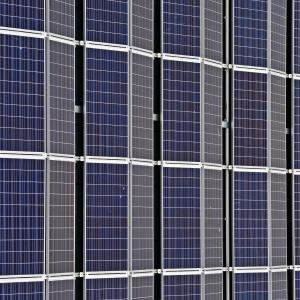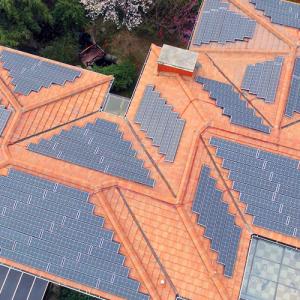3 Types of Solar Storage
You may be looking to reduce your carbon footprint by tapping into renewable energy sources. While wind, geothermal, and hydro power all have their benefits, solar power is an increasingly popular option for home and business owners across the country. Solar energy is plentiful, cost-effective, and uses systems that are relatively simple to install. But it has one major drawback. Solar only produces power when the sun is shining.So what about evenings, nights, and cloudy days? These are often the times when your energy consumption is in the highest demand. Fortunately, there are ways to store solar energy for those darker moments. Let’s take a look:
The type of solar storage you choose will depend on your needs. Commercial solar storage set-ups have many benefits. They can help utilities keep up with peak energy demand but are usually prohibitively expensive for homeowners. For this reason, most homeowners opt for solar batteries when looking to store the solar energy their panels produce.
- Thermal Storage uses various mediums–such as water or molten salt–to absorb and retain heat from the sun. It’s usually used on a commercial or industrial scale.
- Mechanical Storage converts surplus electrical energy into mechanical power using a flywheel, pumped hydro, or compressed air. Mechanical storage is also generally used for commercial-sized operations.
- Battery Storage makes use of electrochemical batteries that effectively store solar power for later use. Batteries are commonly used in residential settings.
How Do Solar Batteries Work?
Solar batteries essentially store energy through a series of chemical reactions. The most common solar batteries are called lithium-ion batteries. They move lithium ions through an electrolyte solution within the battery, releasing electrons for energy storage. When you’re ready to draw on the stored energy, the electrons reverse directions and release usable electricity. Lithium-ion batteries are rechargeable, meaning this process can be repeated over and over again.
What Are the Benefits of Solar Storage?
· They provide backup power in case of power failures.
· They give you independence from the energy grid.
· They make use of local resources (the sun shining on your panels).
· After the initial investment, they can reduce (or eliminate) your energy bills.
· They allow you to use solar energy all day, every day.
· They reduce your carbon footprint!
Is Solar Storage Right for Me?
While the answer will depend on your budget, space, and goals, we believe that solar storage is a wonderful option to keep in mind with solar panels. Solar batteries involve an initial financial investment but are becoming increasingly efficient, streamlined, long-lasting, and affordable. Plus, they allow you to maximize the solar energy being produced and to use it whenever you need it.






